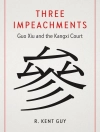This book addresses how Western universities have constructed themselves as global providers of education, and are driven to be globally competitive. It examines how the term ‘international’ has been exploited by the market in the form of government educational policies and agencies, host institutions, academia and the mass media. The book explores matters relating to the role of the English language in international education in general and the field of TESOL in particular. It demonstrates how English and TESOL have exercised their symbolic power, coupled with the desire for international education, to create convenient identities for international TESOL students. It also discusses the complexity surrounding and informing these students’ painful yet sophisticated appropriation of and resistance to the convenient labels they are subjected to.
表中的内容
Preface
1. Looking into the Problem
2. Power, Discourse, Desire and International Education
3. Globalisation, International Education and Questions of Identity
4. Constructing the ‘Truths’ of International Student Subjectivities
5. From Global to Local – Learning Supermarkets in the National Interest: International Education and the Australian Government
6. The Fabric of Relations: Desire and the Formation of Choices
7. Brokering Identity
8. Rika: ‘The Spotlight of Difference’
9. Purchasing the ‘Good’
10. Reconstructing the Discourses of International Education
关于作者
Phan Le Ha is Senior Professor in the Sultan Hassanal Bolkiah Institute of Education, Universiti Brunei Darussalam, Brunei Darussalam, and in the Department of Educational Foundations, College of Education, University of Hawaii at Manoa, USA. She is the author of books including Transnational Education Crossing ‘Asia’ and ‘the West’: Adjusted Desire, Transformative Mediocrity, and Neo-colonial Disguise (2017, Routledge).












